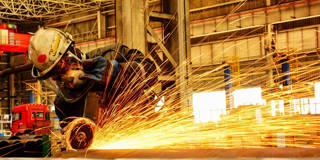
America’s Uneven Future of Work
Because automation and artificial intelligence will change the nature of work for everyone, Americans who are vulnerable to technological disruption would appear to have been created equal. In fact, some workers are more equal than others.
BERKELEY – The US labor market is posting healthy numbers – for now. Yet Americans’ economic prospects vary significantly, depending on who they are and where they live, and these differences will sharpen as the pace of automation picks up in the decade ahead.